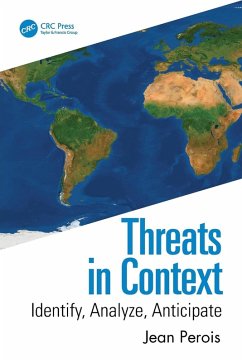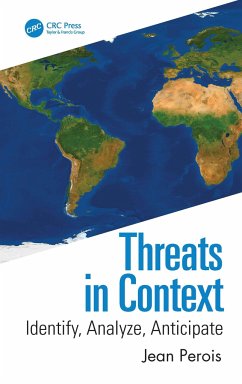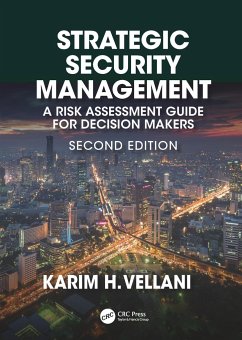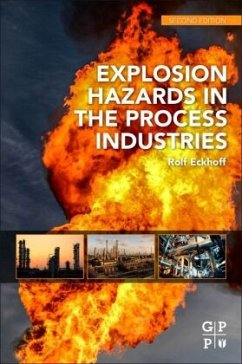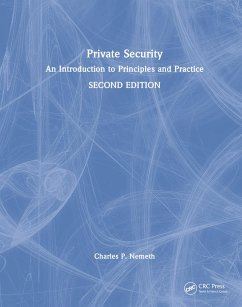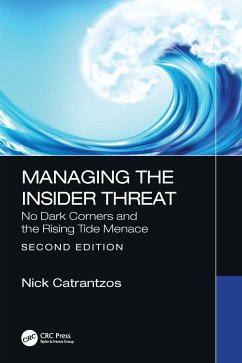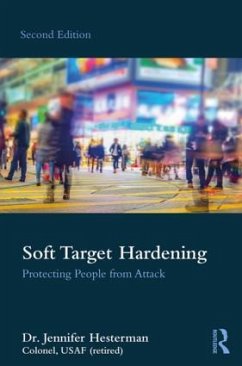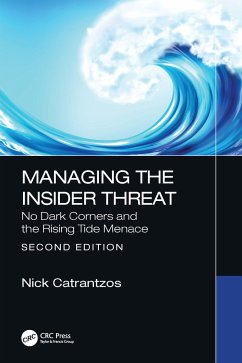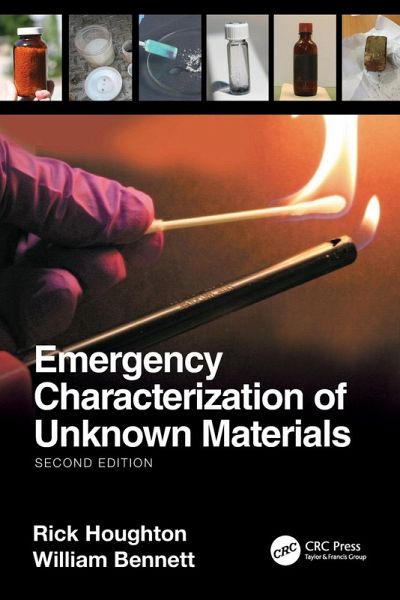
Emergency Characterization of Unknown Materials
Versandkostenfrei!
Versandfertig in 6-10 Tagen
36,99 €
inkl. MwSt.
Weitere Ausgaben:

PAYBACK Punkte
18 °P sammeln!
Emergency Characterization of Unknown Materials, Second Edition is fully updated to serve as a portable reference that can be used in the field and laboratory by workers who are responsible for a safe response to and management of unknown hazardous materials. As with the first edition, the book emphasizes public safety and the management of life safety hazards, including strategies and emerging technologies to identify the hazards presented by an unknown material.When responding to a hazardous material emergency involving an unknown substance, firefighters and HAZMAT teams are primarily intere...
Emergency Characterization of Unknown Materials, Second Edition is fully updated to serve as a portable reference that can be used in the field and laboratory by workers who are responsible for a safe response to and management of unknown hazardous materials. As with the first edition, the book emphasizes public safety and the management of life safety hazards, including strategies and emerging technologies to identify the hazards presented by an unknown material.
When responding to a hazardous material emergency involving an unknown substance, firefighters and HAZMAT teams are primarily interested in protecting public safety. The book details risk analysis procedures to identify threats and vulnerabilities, analyzing them to determine how such risks can be eliminated or reduced. If an unknown material can be identified with a high degree of confidence, that can considerably change the response, and measures to be taken.
In addition, the book covers practical field applications with updated and additional examples of field instruments. The hazard identification methods presented are intended for use by frontline workers. The test methods presented involve manipulation of small sample amounts - using, literally, a hands-on approach. The three technologies used by first responders and military personnel to identify unknown chemicals, Raman spectroscopy, FTIR spectroscopy and high-pressure mass spectroscopy, are covered in depth.
Features:
Presents how to identify unknown materials and, if identification is not possible, to characterize the hazards of the materialOffers practical examples to introduce new first responders to hazardous materials responseProvides up-to-date field applications of the latest developments in commercially available instrumentationDetails practical sample manipulations to help the reader successfully identify materials with popular high-end instrumentationIncludes several examples of spectra and describes ways in which the reader can utilize data to inform decision making
New coverage to this edition includes a chapter and content that focuses on sample manipulation and separations using instruments developed and revised since the first edition was published. These sample manipulations may be performed in the field with a very simple toolkit, which is fully outlined and explained in detail. Identifying the hazards of the unknown substance is essential to plan for response, contingencies and sustained actions. As such, Emergency Characterization of Unknown Materials, Second Edition will be a welcome and essential resource to all response and safety professionals concerned with hazardous materials.
When responding to a hazardous material emergency involving an unknown substance, firefighters and HAZMAT teams are primarily interested in protecting public safety. The book details risk analysis procedures to identify threats and vulnerabilities, analyzing them to determine how such risks can be eliminated or reduced. If an unknown material can be identified with a high degree of confidence, that can considerably change the response, and measures to be taken.
In addition, the book covers practical field applications with updated and additional examples of field instruments. The hazard identification methods presented are intended for use by frontline workers. The test methods presented involve manipulation of small sample amounts - using, literally, a hands-on approach. The three technologies used by first responders and military personnel to identify unknown chemicals, Raman spectroscopy, FTIR spectroscopy and high-pressure mass spectroscopy, are covered in depth.
Features:
Presents how to identify unknown materials and, if identification is not possible, to characterize the hazards of the materialOffers practical examples to introduce new first responders to hazardous materials responseProvides up-to-date field applications of the latest developments in commercially available instrumentationDetails practical sample manipulations to help the reader successfully identify materials with popular high-end instrumentationIncludes several examples of spectra and describes ways in which the reader can utilize data to inform decision making
New coverage to this edition includes a chapter and content that focuses on sample manipulation and separations using instruments developed and revised since the first edition was published. These sample manipulations may be performed in the field with a very simple toolkit, which is fully outlined and explained in detail. Identifying the hazards of the unknown substance is essential to plan for response, contingencies and sustained actions. As such, Emergency Characterization of Unknown Materials, Second Edition will be a welcome and essential resource to all response and safety professionals concerned with hazardous materials.





